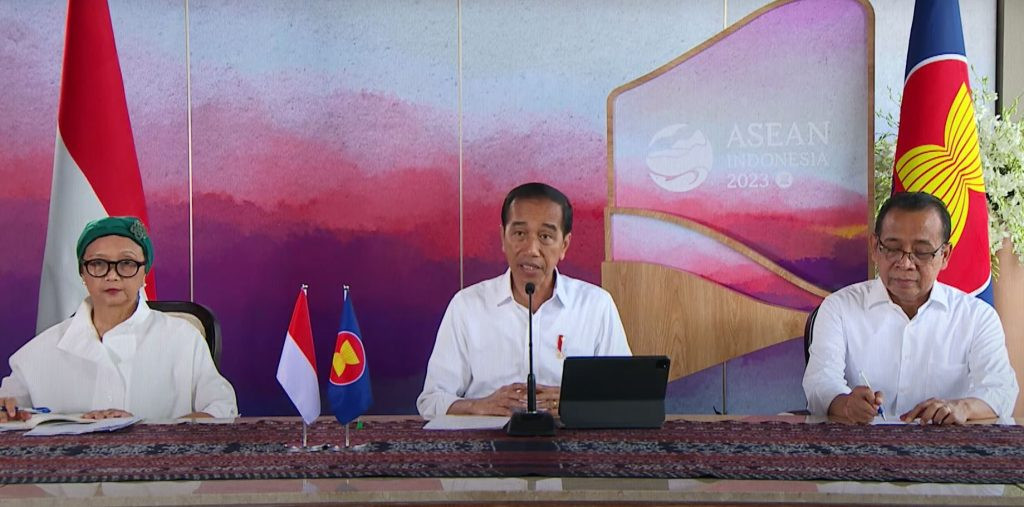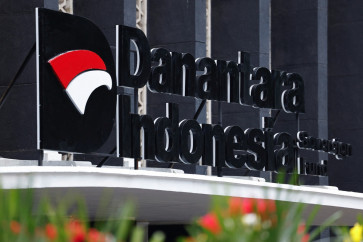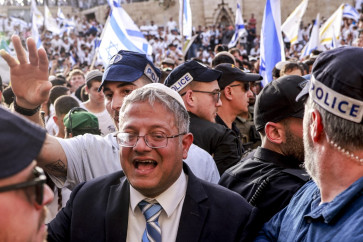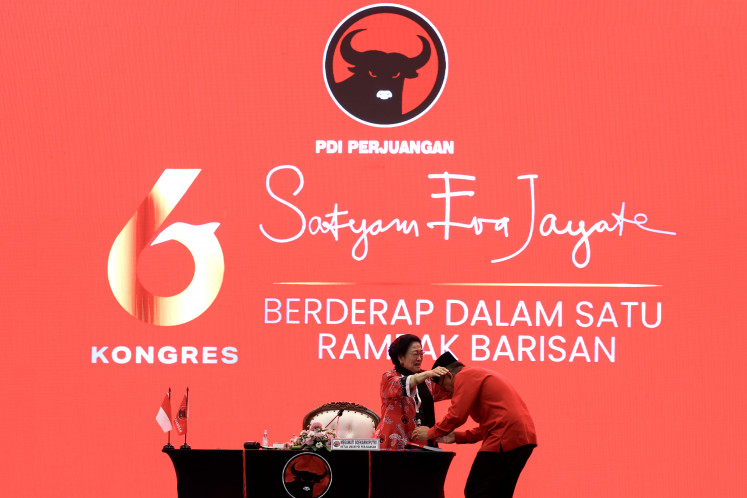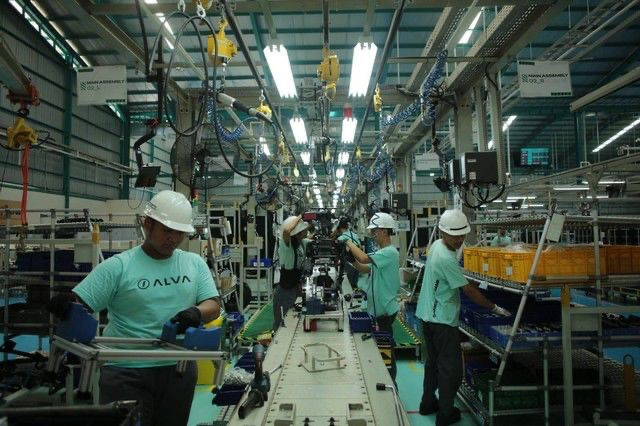Popular Reads
Top Results
Can't find what you're looking for?
View all search resultsPopular Reads
Top Results
Can't find what you're looking for?
View all search resultsIndonesia must not fail its commitment to ASEAN sociocultural agenda
Civil society in the region has come together to stand in solidarity to defend human rights and democracy, utilizing the framework of a states-led regionalism project called ASEAN.
Change text size
Gift Premium Articles
to Anyone
A
head of the opening of the 42nd ASEAN Summit in Labuan Bajo, the Indonesian government announced its commitment to prioritizing the regional socio-cultural pillar, aiming at strengthening cooperation in the protection of migrant workers, regional health architecture and enhancing the development of rural regions.
However, Indonesia, the chair of ASEAN 2023, has so far omitted engagement with civil society and the ASEAN Civil Society Conference/ASEAN People’s Forum (ACSC/APF), which is recognized in the ASEAN Socio-Cultural Blueprints 2015 as an annual forum for civil society engagement in ASEAN.
One of the three pillars of the ASEAN Community, the ASEAN Socio-Cultural Community (ASCC) was adopted during the 14th ASEAN Summit in 2009 with a vision of building an "ASEAN Community that is people-centered and socially responsible with a view to achieving enduring solidarity and unity among the countries and peoples of ASEAN”.
In 2015, or seven years after the ASEAN Charter was adopted, with the formal establishment of the ASCC, ASEAN for the first time stated its commitment “to build a rules-based, people-oriented, people-centered ASEAN Community, where the people enjoy human rights and fundamental freedom, higher quality of life and the benefits of community building” in the ASEAN Community Vision in a document titled “ASEAN 2025: Forging Ahead Together”.
Today, under the chairmanship of Indonesia, those beautiful words sound empty. Many of us, who work on the frontline defending human rights and fundamental freedom of the people, do not feel that we are considered actors in the ASEAN agenda, as civil society has not been invited to nor mentioned in key events and communications.
During the summit this week, ASEAN leaders are holding interface meetings with representatives of four groups, namely, the ASEAN Inter-Parliamentary Assembly, ASEAN Youth, the ASEAN Business Advisory Council and the High-Level Task Force on ASEAN Community’s Post-2025 Vision. The press statement by the chair of the ASEAN Foreign Ministers’ Retreat in February, an annual high-level forum for ASEAN foreign ministers, did not mention engagement with civil society.
Ahead of the ASEAN Summit this week, despite no engagement from the Indonesian government, the Regional Strategic Gathering of ACSC/APF 2023 was held on May 5-7 at Atma Jaya Catholic University, Jakarta, in a hybrid setting where around 200 participants joined online and in-person. The venue was a reminder of Indonesia’s Reform era, which began exactly 25 years ago in May 1998. Under the agenda of Reform, civil society, academics and the student community came together to democratize Indonesia and contributed to national history by overthrowing the Soeharto regime.
This democratization process cost the lives of many, including a number of students who were shot during the first and second Semanggi tragedies in November 1998 and September 1999 respectively. In the two events, government troops opened fire on protesters who gathered near Atma Jaya University.
The people’s struggle led to reforms and catapulted Indonesia to the rank of “the most democratic” nation in Southeast Asia. However, peace and democracy in Indonesia remain fragile.
In Labuan Bajo, prior to the ASEAN Summit, an activist who planned to organize a protest to demand compensation for forced evictions received a police letter warning him of possible defamation charges linked to his move. In Jakarta, rights activists Fatia Maulidiyanti and Haris Azhar face defamation charges filed by Coordinating Maritime Affairs and Investment Minister Luhut Panjaitan, in relation to a discussion they held on YouTube channel about the findings of research by NGOs on military operations in Papua.
The Observatory for the Protection of Human Rights Defenders, a partnership of the International Federation for Human Rights and the World Organization Against Torture, has received the case and condemned the judicial harassment of the rights defenders. Restricting freedom of expression, which is the heart of democracy, also constitutes a human rights violation.
Elsewhere in Southeast Asia, brutal human rights violations continue. Just a month ago, on 11 April, the deadliest airstrike on civilians since the Myanmar military seized power in 2021 killed at least 170 people while they celebrated the opening of a community hall. Last week, the shooting of young activist Anousa Luangsuphom in Laos shocked many. In Cambodia, independent media are being forced to shut down as part of a crackdown on democracy.
This is why it is crucial that the civil society in the region come together to stand in solidarity to defend human rights and democracy, utilizing the framework of a states-led regionalism project named ASEAN.
ACSC/APF 2023 will be held with the theme of “Democratizing ASEAN: Reclaiming the People's Space for a Just Economy and Inclusive Community in Southeast Asia” on Sept. 1-3, a few days before the 43rd ASEAN Summit in Jakarta. Following the consultation at the regional strategic gathering held last weekend, the forum in September will be a space for civil society practitioners to discuss several pressing issues around the situation of human rights and democracy in ASEAN, including climate and environmental justice, socio-economic justice, civic and democratic space, peace and human security.
Indonesia can still provide a space for civil society to do so freely, and as the chair of ASEAN, the Indonesian government must engage with ASEAN civil society to hear, understand and address the concerns of the people of ASEAN, particularly those who are marginalized and vulnerable.
The chair of ASEAN must ensure that these concerns are heard by all of the ASEAN member states and their leaders. Otherwise, Indonesia will fail the ASEAN socio-cultural agenda, which it regards as as a priority.
***
The writer is the executive director of Indonesia’s NGO Coalition for International Human Rights Advocacy (HRWG), co-chair of ACSC/APF 2023, and cofounder of Better Engagement Between East and Southeast Asia (BEBESEA).

